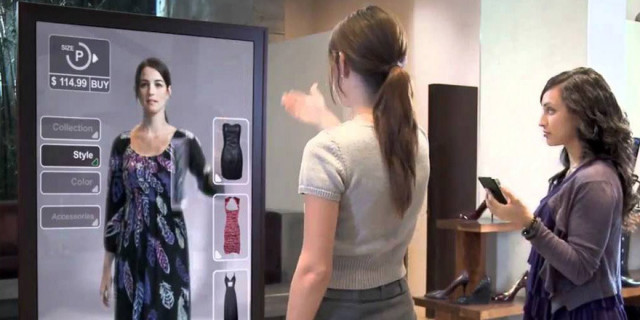"Groundbreaking" AI tool that will help Fashion indusry save billions

Oxford University tech spinout has created a "groundbreaking" AI tool that scans users' bodies to deliver precise apparel dimensions.
Published: 2023-03-12
With the goal of expediting the online shopping process and saving UK merchants billions in returns, an Oxford University tech spinout has created a "groundbreaking" AI tool that scans users' bodies to deliver precise apparel dimensions, said an article from Duncan MacRae for AInews.com.
The tech company was initially founded in 2019 by Duncan McKay, an INSEAD MBA, and Phil Torr, a professor of computer vision and deep learning at the University of Oxford. Since then, the company has received funding totaling about £1.2 million from two Innovate UK Grants and one Future Fashion Factory Grant in collaboration with the University of Leeds.
I have developed innovative product concepts and consumer solutions while working for L'Oreal, Unilever, and PepsiCo, where I established an £18 million net sales business in a year, according to McKay. I got into this because I enjoy innovating, as well as creating and growing businesses. I co-founded Aistetic with Phil Torr because I had personally dealt with the issue of ill-fitting clothing and we both thought that a technological solution might be used to address it. Our goal is to make next-generation 3D body modeling accessible to anybody with a mobile device, which is why we developed our patent-pending approach.
With just one little piece of JavaScript, Aistetic, a low-code solution, can be integrated into the websites of merchants and is compatible with both WordPress and Shopify businesses. Users of Aistetic may choose a garment, utilize AI software to scan their bodies and obtain in three minutes or less their measurements and clothing sizing unique to the merchant they are shopping with. According to McKay, this new technology can lower return rates by up to 30%, saving businesses a lot of money.
According to McKay, customers may use our technology to video themselves using a phone, tablet, or computer and obtain measures that are 98% accurate. All they have to do is take a 10-second step back and turn in front of the camera. Using this tool can lower rates of return by up to 30%. We aim to empower individuals with their own data to make better-educated decisions that are good for them. Our next step is to provide a no-code solution for Shopify users, which will completely eliminate the need for any code and make our grey-labeled solution available on Shopify's app store platform.
High return rates not only significantly reduce profit margins for shops expanding their online businesses, but they also have a large negative environmental impact on the fashion industry, which the UN estimates are responsible for 10% of all carbon emissions worldwide.
According to McKay, if the item is brought back into the store, the carbon impact of a return might reach 4.2 kg. We frequently forget to think about this. This technology will aid in promoting a more responsible approach to clothes since it is simple to use and is a low-code solution that can be inserted into any website.